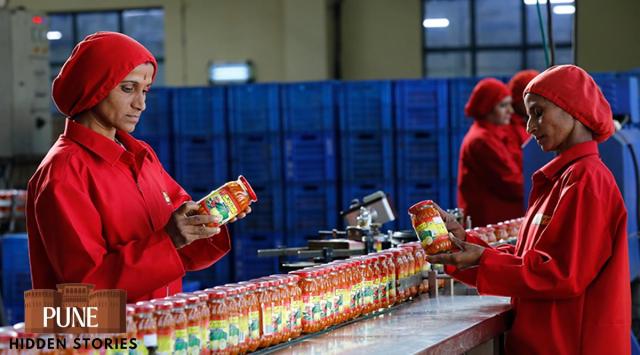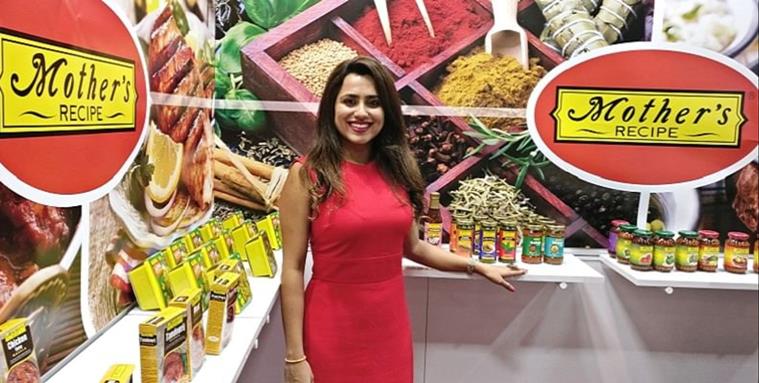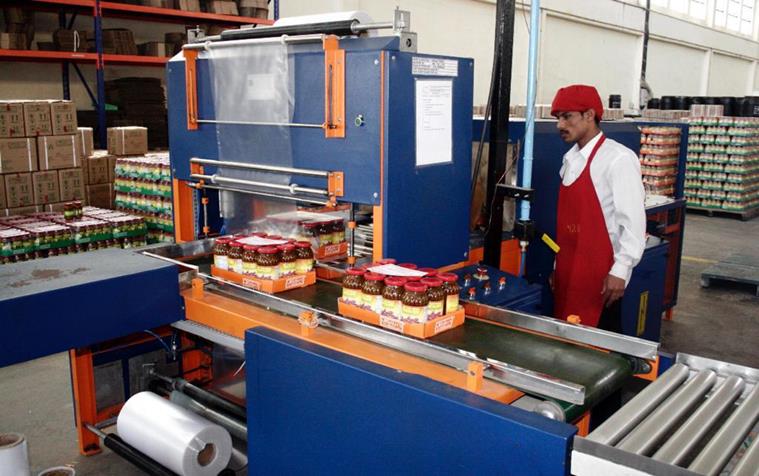Click here to join Express Pune WhatsApp channel and get a curated list of our stories
From a wada in Pune to cities across the world, how Mother’s Recipe became a brand to reckon with
Mother’s Recipe grew as a brand from Pune’s Kasba Peth and captured the market in less than 15 years. It is now looking to expand its footprint, aiming ‘to support the mother, not replace her’ in the kitchen.
 Mother’s Recipe set out to be a national brand at a time when shelves were filled with strong regional labels. There was stiff competition in every geography. (Express)
Mother’s Recipe set out to be a national brand at a time when shelves were filled with strong regional labels. There was stiff competition in every geography. (Express) Mother’s Recipe is a recognisable brand with a nationwide presence and across 50 countries. In the category of pickles, it is a market leader in India. Yet, when Sanjana Desai, executive director of the food brand, visits kirana stores, supermarkets and Indian stores abroad, she says she is in for a surprise. “I find that a lot of people like Mother’s Recipe but everybody thinks it is from somewhere else but nobody knows exactly where,” she says.
It was from a wada in Pune’s Kasba Peth that Mother’s Recipe grew as a brand under the watchful eyes of Sanjana’s father Sanjay Desai, chairman of Desai Foods. The Desai family had come to Pune from Gujarat and their original business, in 1901, was tobacco. Today, Mother’s Recipe, a part of Desai Foods Pvt Ltd, makes pickles, papads, chutneys, cooking pastes, curry powders, instant mixes, sharbat, ready-to-cook items and sauces in Indian flavours.
 Sanjana Desai represents the first generation of girls from her family to join the business. (Express)
Sanjana Desai represents the first generation of girls from her family to join the business. (Express)
“It is a part of our culture that we don’t make anything that we don’t eat ourselves at home. This is the reason that we do not use preservatives or MSG. Our intention is to support the mother in the kitchen, not replace her with products,” says Sanjana. “The ginger-garlic paste, for instance, is designed to reduce negative labour of peeling, cutting and pasting,” she adds.
The company’s factory is in Sarole, on the Pune-Bangalore Highway. Work begins on a product only when an order is received “so that it is fresh getting out”, says Sanjana. Wafting through the air is a melange of smells, of spices blending, curry leaves, chillis and pickles. Most of the process has been automated and the ingredients are not touched by hand. From one part comes the sound of packaging, from another, the clanking of bottles. Papads travel down a conveyor belt — round, slightly dry and ready to be packed. Outside, trucks wait with mangoes and other produce from the market.
When Sanjay bought the brand from Mumbai-based ADF, reportedly for Rs 6 crore in May 2002, Mother’s Recipe was only producing pickles. “I used to go to the mandi in Market Yard at 3-4 am every day to learn and source the best mangoes and other produce,” says Sanjay. He says he used to carry a special knife, which he still has, to check different sacks of mangoes for acidity, colour, bite and other quality parameters.
 Mother’s Recipe continues to make pickles with oil and salt as preservatives, just as mothers and grandmothers of the past used to. (Express)
Mother’s Recipe continues to make pickles with oil and salt as preservatives, just as mothers and grandmothers of the past used to. (Express)
In less than 15 years, Mother’s Recipe captured the imagination of people. In 2016, Euromonitor calculated that the market size of pickled products was Rs 1,442.44 crore. Mother’s Recipe occupied 24.1 per cent of the market share.
Mother’s Recipe set out to be a national brand at a time when shelves were filled with strong regional labels. There was stiff competition in every geography. “From the beginning, the company believed that Mother’s Recipe could be not just in big cities of Delhi, Mumbai and Bengaluru but everywhere because a mother is universal. The palate in India changes every few hundred kilometres. Dad picked up on that and ensured that all our products matched regional tastes,” says Sanjana. So, they have several variations of mango pickle; the one for North India has chunky pieces in mustard oil while, for South India, the fruit is shredded or cut small and soaked in sesame oil.
Mother’s Recipe continues to make pickles with oil and salt as preservatives, just as mothers and grandmothers of the past used to. Sanjana says that she realised this is rare in a market flooded with preservative-loaded pickles. “The salt tolerance of people has reduced so we will reduce our salt as much as possible but never to the extent where we have to add preservatives,” says Sanjana.
In 2005, Mother’s Recipe faced one of its early setbacks when it launched a line of masala mixes after heavy investment in packaging and advertising. The product came in a deep pouch with a ziplock and didn’t win over customers. “That’s one category that we didn’t continue with. We think it was ahead of its time,” says Sanjana.
She represents the first generation of girls from her family to join the business. “I, mostly, take care of marketing and sales. I like talking to people in shops in order to have my finger on the pulse of the market,” she says.
Sanjana has graduated in Economics and Finance but is a passionate artist with a fondness for dot paintings. “I like the idea of finishing a painting over time. When you start making dot paintings, you don’t know how it will look at the end,” she says. Her creativity can be seen in a lot of the packaging, especially the range of sauces launched three months ago after Sanjana oversaw the acquisition of a company that makes sauces in Kolkata. Under her, the brand is working towards increasing its expansion to get Mother’s Recipe to “as many consumers as possible, especially women”.
Sanjana says she has been in situations when people have asked to speak to her manager, unable to accept that she is the boss. “There are a lot of working women out there. The majority of staff in our office are women. We have to prioritise our time, spend it with our partner, children and friends and do something for ourselves. Mother’s Recipe products want to make women’s work easier,” she says.
She also believes it is time to make the public of Pune feel like a part of the Mother’s Recipe journey. The factory buses and vans that move around the city now carry the tagline: ‘We are made in Pune with love’.
Click here to join Express Pune WhatsApp channel and get a curated list of our stories








